Review: Depression Quest
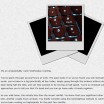
Developer: Zoe Quinn
Publisher: Zoe Quinn
Platforms: PC (Steam), Internet Browser
Released: February 14, 2014
Genre: Interactive Fiction
Modes: Single-Player
Content Warning: Use of Alcohol, Adult Language, Sexual Situations
I’ll Tell You My Sins And You Can Sharpen Your Knife
* Note: In the interest of full disclosure, I have not contributed to the making of, or continued survival of, the Depression Quest game. I have, however, donated to The National Suicide Prevention Hotline via their homepage. If you would like to donate to the NSPH directly, you can find the link to their homepage here.
Images used in this article are for review purposes only. *
Never judge a person without walking a mile in their shoes.
I suppose the same could be true about judging a game you’ve never played. So, in the interest of fairness, I decided to give Depression Quest a go. And although I wasn’t blown away or taken aback by the narrative here, I do see the importance of Depression Quest as a learning tool for people suffering from, or wanting to understand, a depressive state of mind. The thought of losing control as time goes on, to feel this sense of helplessness in your life as choice is taken away from you the deeper you sink into the darkness of your own mind. And only by taking control of yourself, by admitting that at times you need help to understand life or help to understand the emotional turmoil of something you cannot battle alone, only then will you only be able to take control of choice.
I get that. I do. It’s just questionable the methodology in this…. OK I’m sorry, I just have a difficult time trying to even call this game just a game. In my opinion, it’s a work of interactive fiction. And before the argument can be made that it’d be more akin to something like ShadowGate or Zork!; well, that’s the problem. You see, with them you’re given tools and items to help problem solve the various challenges contained within their narratives. Find a torch, keep it lit in ShadowGate, survive. Find a sword in Zork!, use it to slay a troll, survive. These tools and items are required to complete the game. I mean, yes, you could choose to not take them, But in the end you don’t get very far or complete the narrative without them.
In Depression Quest, it’s not so much just the loss of choice as it is the lack of having tools to help you effectively problem solve various social and personal crisis that pop up during the story as you would be able to do in the aforementioned titles. You’re simply given an A, B, C, etc, list of choices in a sort of quasi-choose-your-own-adventure motif. Now you could argue that you could count having a cat, taking medication, and seeing a psychologist as useable tools. That’s argumentative of course, since they are, again, personal choices that simply impact the story’s various endings. You don’t need them to complete the storyline.
The user interface, as described, is minimal. Again, as you either make progress in dealing with, or regress by shutting out, the various so-called challenges presented to you, your ability to actually make a conscious choice in your life is either taken away or different options are eventually opened up to you. This ebb and flow, consequence and effect metric works to a degree. You’re not always going to make the best choice for your mental health. There’s no bright and shining path towards a better tomorrow laid out for you. There’s no ultimately “happy” ending here. You make a choice to what you think is best for you, and you live with the consequences.
Audio wise, you’ve got a minimalistic approach; somber piano music permeates the idea of sadness, punctuated occasionally by click techno, and the quiet murmur of indistinguishable voices when you’re in the presence of family, large social gatherings (like going to dinner at a restaurant), or seeing your psychologist. But beyond that, it’s the quiet mood that deepens the idea of depression: lonely, lifeless and alone.
I would, however, be remiss not to point out that the narrative fiction contains several grammatical errors. One is in the very choice list that you make early on in the game. Several others, such as word spacing and missing punctuation marks, detach readers from the narrative. Though they are minimal (and easily fixed with some quick patching/edits), they still stand out when you’re expected to read and understand the fiction’s intention of telling an impactful story.
Final Thoughts: Is Depression Quest a game? Well, that’s the million dollar question now, isn’t it? The controversies surrounding Depression Quest mar the idea that it should be, in some ways, no different from any other point and click, interactive work of fiction much like the previously listed examples. But the lack of problem solving, or rather the lack of tools to help deal with problem solving, within Depression Quest’s narrative makes the notion that it is a game debatable. You’re simply limited to a choices list much like a choose your own adventure-type work of fiction. And I hate to say it but that doesn’t constitute, in my opinion, a game. However, I do consider Depression Quest an excellent learning tool. For those suffering or wishing to understand what it means to battle depression on a daily basis, this is an excellent program to read and understand as the proverbial outsider-looking-in.
It’s just too bad the message that it’s attempting to impart is currently being embroiled in the cultural gaming war between two dissenting viewpoints right now.

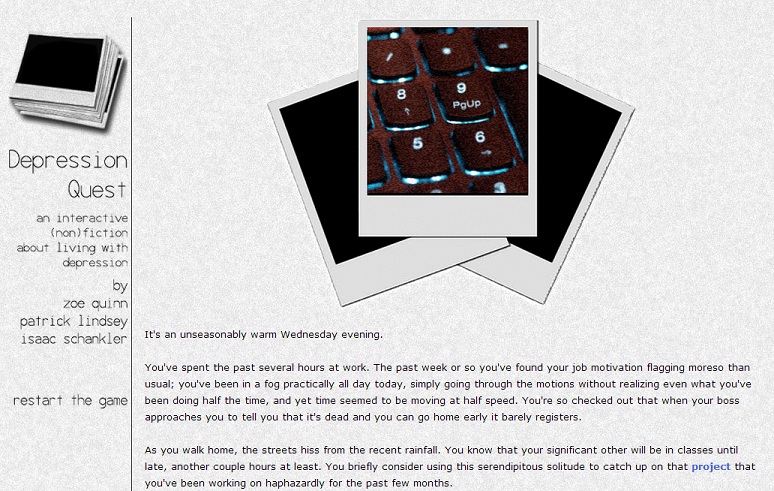
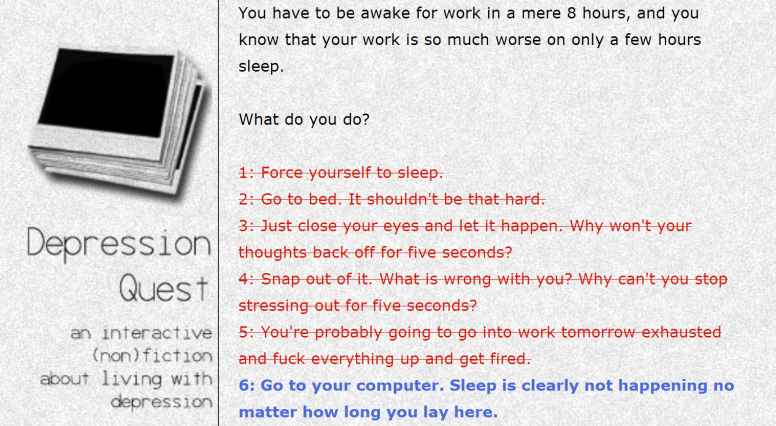
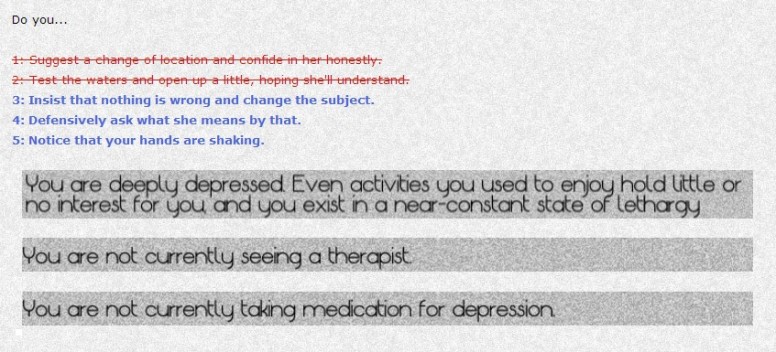


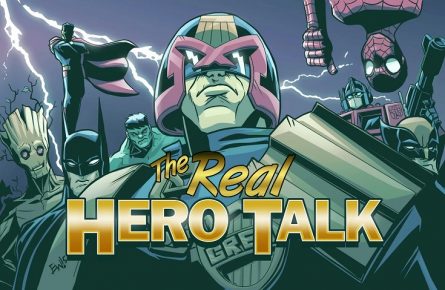

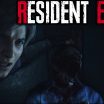


Leave a Reply